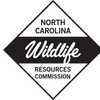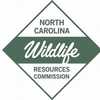How can the NC Wildlife Resources Commission improve compliance with boating regulations and, in turn, public safety? (Refined research question*)
Share this project
Topics
Project Overview
Summary
The North Carolina Wildlife Resources Commission (NCWRC) is the regulatory agency responsible for enforcing the boating laws and navigation regulations on North Carolina’s waters, as defined in G.S. §75A . The NCWRC’s Law Enforcement Division employs approximately 150 field officers charged with improving public safety through enforcing these regulations, providing boating safety education, and promoting regulatory compliance in the state’s 100 counties.
Non-compliance with boating regulations can be detrimental to public safety. As such, the NCWRC is partnering with North Carolina State University and Wake Forest University to conduct an evaluation of boating safety laws, rules, and agency practices to improve compliance with boating regulations across the state. The objectives of the project are to:
- Use extant data to determine practices, programs, contexts, and legal structures that promote compliance with boating laws and regulations that have impacts on public safety; and
- Develop interventions to improve compliance with boating safety laws.
This project will be conducted in three phases. Phase one will involve data review and analysis of violations, citations issued, and outcomes to identify trends in noncompliance. Potential areas of exploration include identifying trends in the types of citations issued, most common violations by district, citations most successfully prosecuted, and/or the areas or times of days when certain violations occur. Additional data on education and outreach efforts may be used to identify potential correlations between these activities and compliance. Interviews may also be conducted with NCWRC Law Enforcement Officers and other agency staff to help explain trends.
Phase two assess the contexts that encourage or discourage boating safety law compliance through interviews and surveys of boat operators involved in disposed cases.
Phase three will develop outreach interventions to encourage boating law compliance and test their effectiveness by analyzing data gathered before and after the interventions.
The NC Wildlife Resources Commission (NCWRC) and the NC Office of Strategic Partnerships (OSP) hosted a research partnership meeting on September 22, 2022, to discuss this project. Click here for the meeting recording and NCWRC slide deck.
*This was revised from the original research question which was “How can the NC Wildlife Resources Commission improve compliance and, in turn, public safety?”
This project summary was revised on August 25, 2023.
Anticipated deliverables
- Anticipated deliverables include detailed research reports on the outcomes of the project's three phases, presentation(s) to NCWRC staff, and project progress reports.
- Qualitative insights on how boaters make decisions about life jacket use – slide deck from a public presentation of project results as of April 30, 2024.
Planned use of results
The project will develop recommendations for practices that have demonstrated positive impacts on compliance. The NCWRC will use these results to modify regulations and agency practices and allocate resources towards activities that improve compliance and public safety. The results will also inform outreach and communication efforts on regulation changes and have broad applicability to other regulatory agencies striving to increase regulatory compliance.
Funding
OSP, agency partners, and research partners work together to determine if a project has costs, what funding may be available, and possibilities for pursuing funding, if needed.
The NCWRC will support the project by providing data, contact information, and connections with NCWRC Law Enforcement Officers and other agency staff. NCWRC will also assist in the development and implementation of alternate methods to improve compliance. Further support will be available during interview development and data collection.
Data
Five years of data on boating-related law enforcement activities:
- Checks, arrests (citations), warnings, and court outcomes
- Categorized by WRC management districts and activity type
- Staff activities and allocation of time
Five years of data on Boating Education classes taught by Law Enforcement Officers statewide
Five years of data on specific outreach campaigns, including press release information and data analytics
All boating safety laws and rules
Project Team

NC Wildlife Resources Commission

Wake Forest University

NC State University
